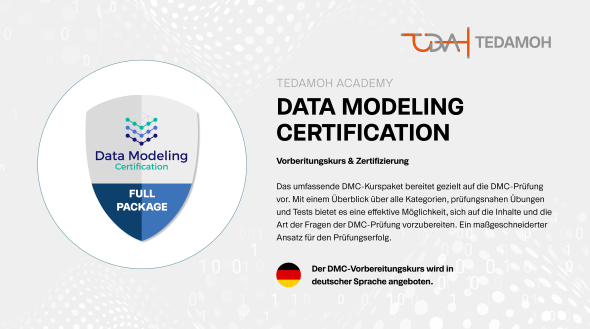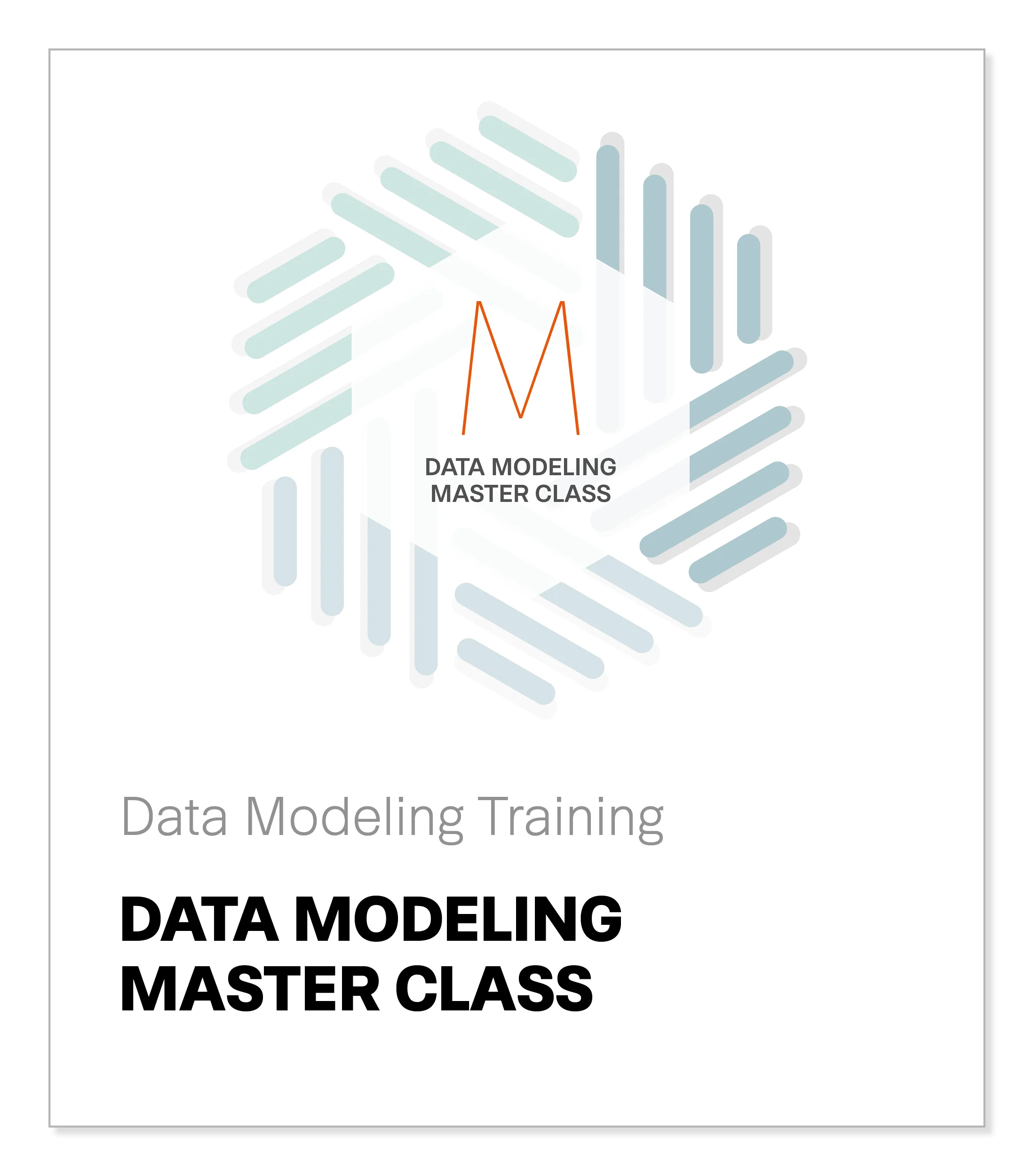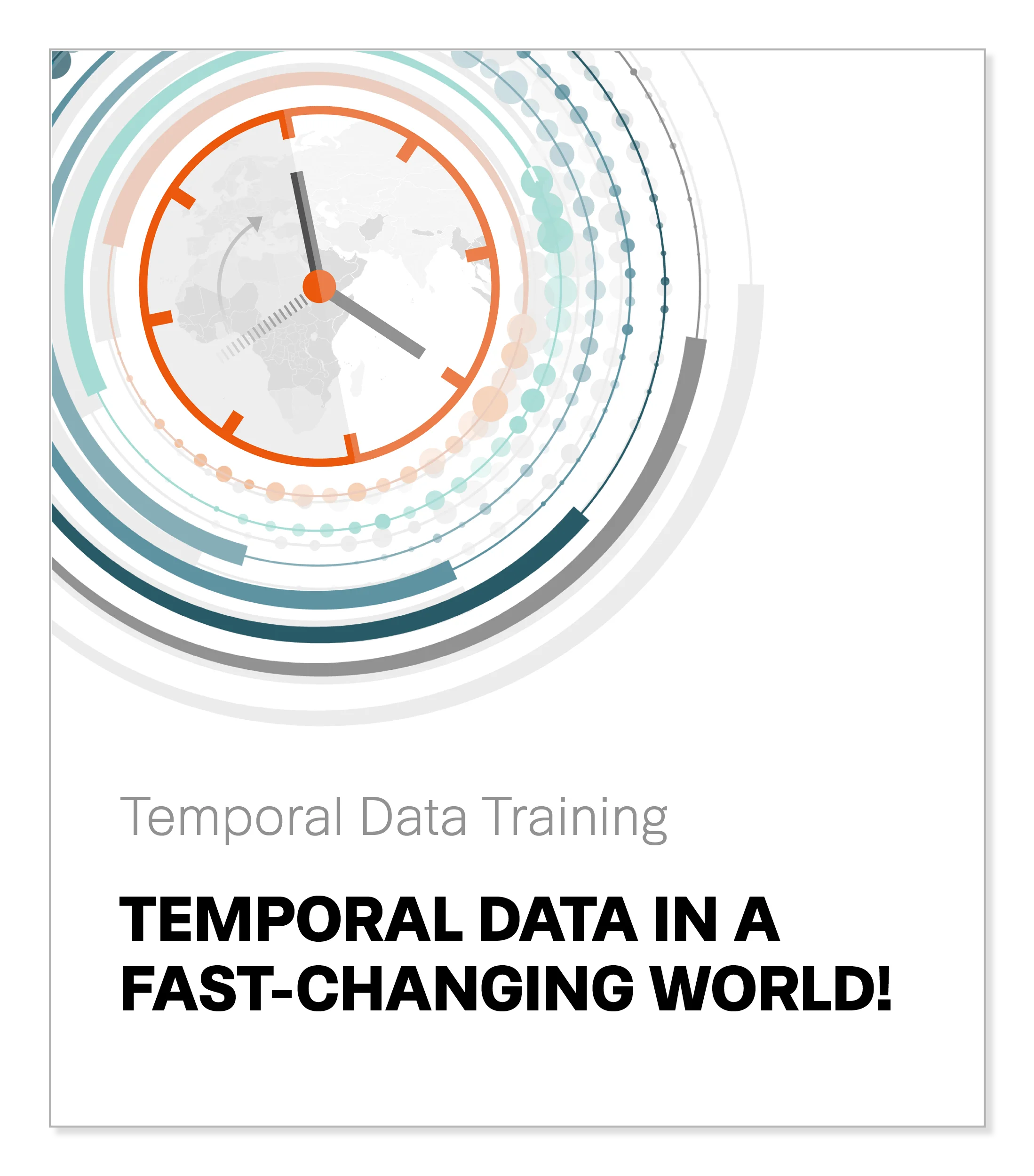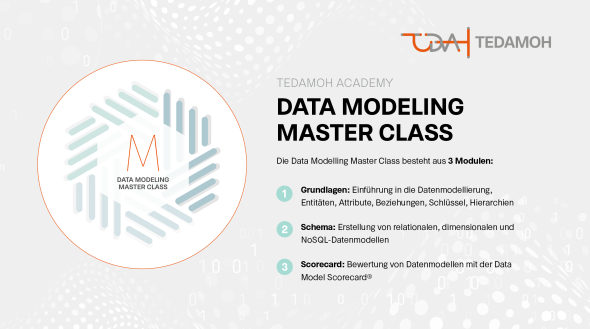With our TEDAMOH Academy we offer various seminars, trainings and workshops as well as certifications to support and expand continuous learning in everyday work.
You can either expand your theoretical knowledge by attending a seminar or training or acquire knowledge yourself in practice-oriented workshops. To learn a theory or methodology, such as how to handle temporal data, or to obtain certification in data modeling, it is best to visit our training section.
Temporal data in a fast-changing world! (privat class)
The Temporal data in a fast-changing world! training focuses on methods and techniques for handling bitemporal data in a data warehouse. This includes data modeling, loading bitemporal data into a target data object in the core layer of the data warehouse, and finally making this data available to users.
DMC - Preparation course

This package allows you to book all online self-study courses and the Data Modeling Certification (DMC) exam.
You can join the online self-study courses at any time. You can learn at your own pace and according to your time constraints, without being bound to fixed dates.
Data Modeling Master Class - German
DMC - Preparation course

This package allows you to book all online self-study courses and the Data Modeling Certification (DMC) exam.
You can join the online self-study courses at any time. You can learn at your own pace and according to your time constraints, without being bound to fixed dates.
DMC - Preparation course

This package allows you to book all online self-study courses and the Data Modeling Certification (DMC) exam.
You can join the online self-study courses at any time. You can learn at your own pace and according to your time constraints, without being bound to fixed dates.




